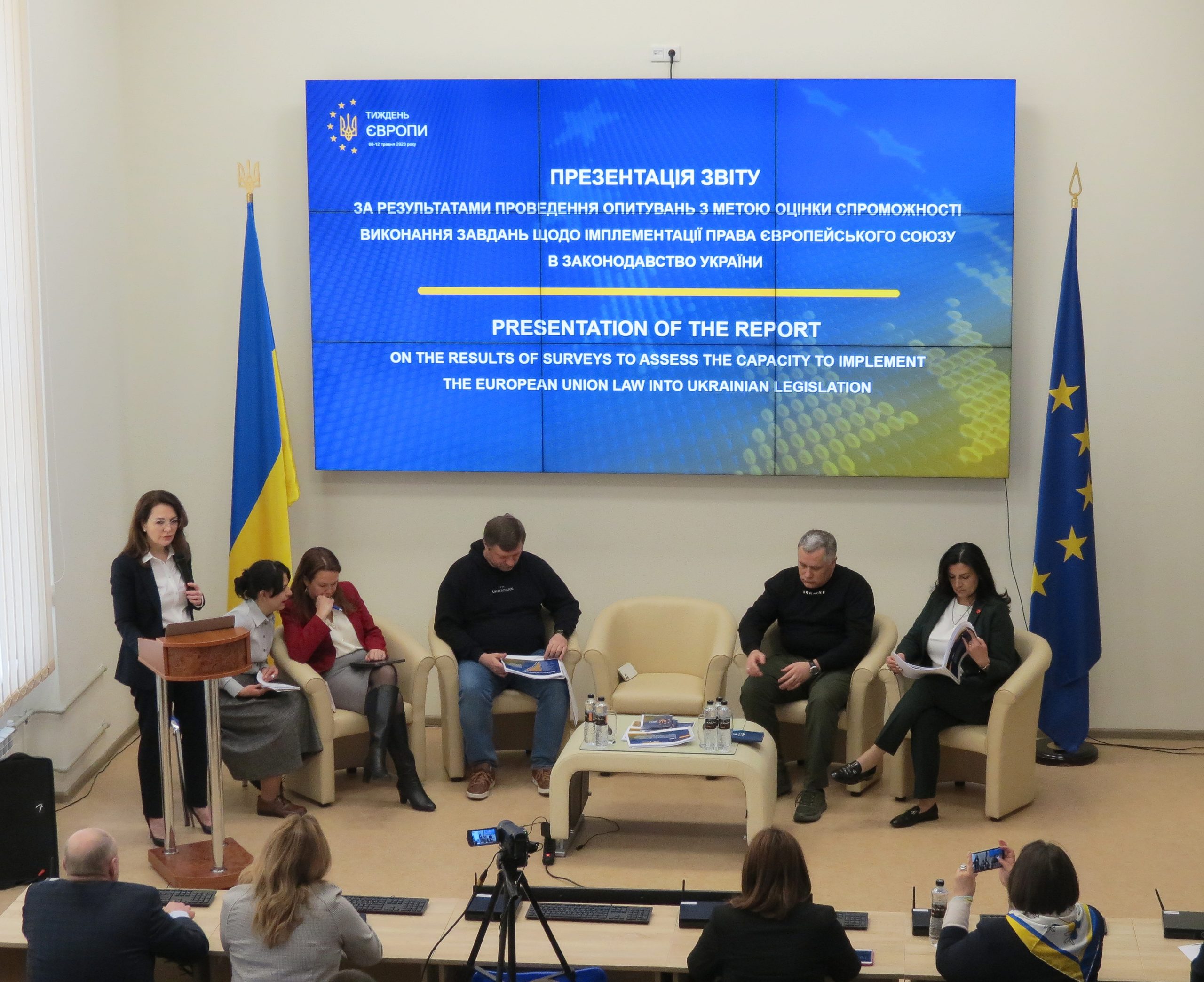
Ukraine’s accession to the EU has given us an impetus to reassess our capabilities and the capacity of the entire state apparatus in the EU sphere. This was emphasised by Nataliia Aliushyna, Head of the National Agency, when presenting the Report on the results of surveys conducted in central executive authorities and other public authorities to assess the capacity to perform tasks related to the implementation of EU law in Ukrainian legislation.
The Head of the Agency emphasised that the main task in the framework of negotiations on Ukraine’s accession to the EU is to fully align legislation with the current EU law. In order to assess the ability of executive authorities to implement EU law into Ukrainian legislation, the National Agency, in cooperation with the Centre for Adaptation of the Civil Service to EU Standards and the CMU Reform Office, initiated and conducted a survey.
The survey was conducted between November 2022 and February 2023. It involved 76 public authorities and the CMU Secretariat. The second stage covered 2,471 specialists.
The results of the survey showed that the negotiating chapters on Ukraine’s accession to the EU regulate 128 policy areas, and at least 76 central government agencies will be involved in the accession process.
One of the objectives of the study was to identify the government agencies responsible for each of the 128 policy areas. However, it turned out that in 12 of the 128 policy areas, there is no government agency that plays a leading role in policy making. And in 27 areas, several authorities identified their role as the leading one.

The number of specialists in the bodies directly involved in the development of policies included in the negotiated chapters is 3,259. The issue that needs to be corrected is that only 44% of their working time is spent working on policies included in the negotiated chapters.
The distribution of specialists involved in policy-making is uneven, and the respective negotiation sections differ in terms of both the number of areas and the workload. For example, the number of people involved in the negotiation section in the energy sector ranges from 395 to 19 in the public procurement sector. The Ministry of Economy of Ukraine, the Ministry of Agrarian Policy and Food of Ukraine, the Ministry of Community, Territorial and Infrastructure Development of Ukraine, the Ministry of Environmental Protection and Natural Resources of Ukraine, the Ministry of Energy of Ukraine and the Ministry of Justice of Ukraine are expected to have the largest workload in preparing Ukraine for EU accession.
Experts from the ministries account for 44% of all experts involved in policy making (legislation development). More than 56% of specialists involved in policy areas under the negotiated sections work in other government agencies, among which the most significant share is held by independent regulators and policy-making central executive bodies. Each of the policy areas covered by the European integration process involves an average of 6 government departments.
In ministries with a high and medium workload, 45% to 70% of independent structural units involved in policy-making in the field of European integration (approximation of Ukrainian legislation to EU law) are involved in the policy areas covered by the negotiation sections.
The share of specialists who have both experience in screening and legal approximation and have a B1 or higher level of English is 30%.
The results of the professional development demand survey showed that it is high among all specialists for most of the proposed topics.